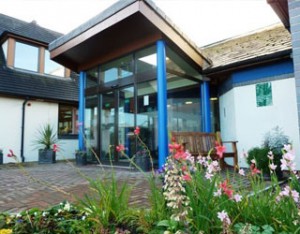Clair has stage 4 colorectal cancer and is receiving palliative care. She has a website where she tells her story: www.dying well.uk
“Diagnosed with stage 4 bowel cancer in 2018, initially I was given less than a 50% chance of surviving a year.
I first knew I was really sick when I had to be rushed to hospital in an ambulance. For a couple of days I was given lots of drugs while doctors decided if I could have the surgery that I needed to keep me alive. I woke up in ICU with a stoma & the news that I probably had cancer. In that moment though, having been so close to death in the previous 48 hours, I felt like a survivor.
With 3 major surgeries, countless chemo episodes, some radiotherapy and a spot of immunotherapy I was able to enjoy 3 ‘bonus years’ where mostly I felt quite well.
Ticking the box for ‘palliative care’ was a big deal for me. I’ve always known that the treatment is unlikely to be a cure, but instead it will buy me more time. How much more time I wasn’t sure. Once I passed that first year milestone, the medics were optimistic: “probably years, rather than months” was what I was told to hope for. My husband suggested that it would be super helpful if I could make it to see our youngest daughter start secondary school. That seemed like a million miles away then, but was a joyful occasion that I was delighted to be here for.
It mattered to me that the time I had was good. Yes I want to be here for my children, but I want to be well. I have no particular fear of death or dying but I’m not very keen on the idea of being so sick that I lost myself. I want them to remember ME, not a sick ghost-like shell. Apart from the sickness brought on by chemo and the recovery periods after surgery, I was generally fit and well. I kept working pretty much full time until scaling back to ‘retirement’ in January 2021. While I was working, many colleagues had no idea how sick I was. I completed couch to 5k during the first lockdown.
I stayed mostly busy, active and happy.
Faith has been an important part of my life for many years. I have felt God coming close to me in the darkest places, and have felt comfort and reassurance because of his presence. I am fortunate in having a loving and supportive family, and am part of an amazing church community.
During my illness I noticed some things:
- Doctors are keen to do whatever it takes to keep you alive, without really being that interested in the quality of life that they are giving you. They seem hesitant to admit what they see as ‘failure’ of running out of active treatment options and reluctant to talk about death.
- Any efforts towards rehab or mobilisation outside of the medical interventions have to be pretty much self motivated. Although keen to subject you to treatment, it feels like you’ve ticked the ‘rehab’ box as far as the medics are concerned, if you can walk unaided from the hospital. Longer term fitness and lifestyle goals are rarely discussed.
- People seem to think that if I look well that I am better and if I look sick I’m about to die. Actually how I look is mostly about treatment side effects rather than disease progression. There seems to be little space for me to be well, but dying.
So I became interested in the spaces in between living and dying.
I’ve been encouraging a rethink of end of life care by using wellbeing evidence to inform and improve services. I’d love to see more focus given to living well, designing in wellbeing and properly holistic person centred care.



Leave a Comment